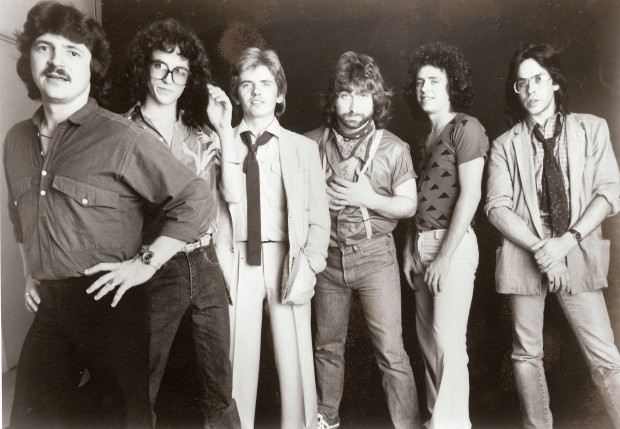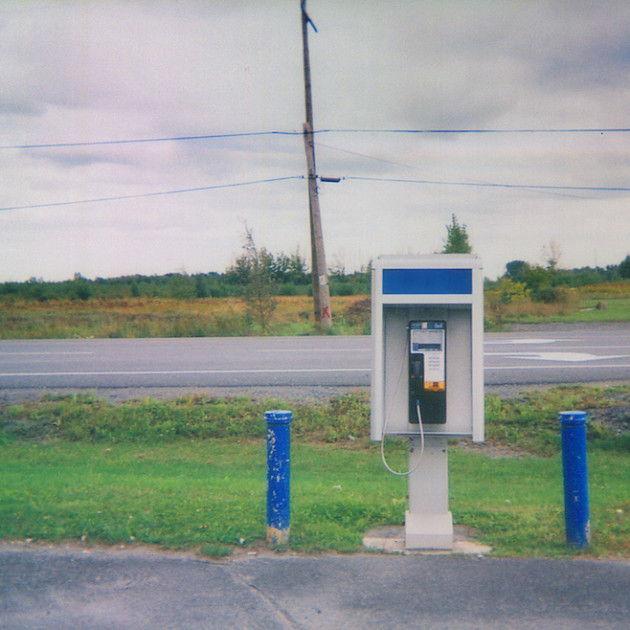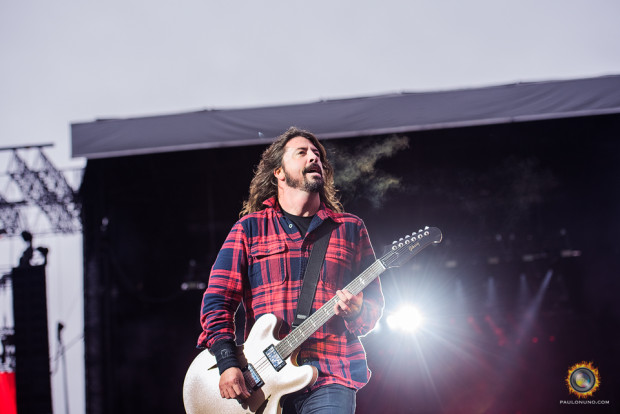On paper, there seems no situation that would combine the disparate elements of film-maker and master of the surreal, David Lynch, future Captain Picard and Professor X, Patrick Stewart, former Police-man Sting, ambient music guru and former glam rock icon Brian Eno, and soft-rock superstars Toto. Surely, you might say, if there was something that brought all these people together and united them on one project, that project would be a crazy, unwieldy thing, probably unloved by all?
Well, if you did think that, you’d probably be right.
Released in 1984, Dune was intended to cash in on the sci-fi boom created by Star Wars, and with Return of the Jedi bringing the saga to a close in 1983 (or so we thought…), the movie adaptation of Frank Herbert’s 1965 novel was sure to be a smash, right? Well, as with so many things, plans don’t always work out right, and upon its release, the film was savaged, and has spent the last thirty years languishing as – at best – a cult classic, or – at worst – a pile of shit.
Speaking to me back in 2007 as part of his visit to Belfast to discuss Transcendental Meditation, David Lynch described Dune as the “Least loved” of all his cinematic children. The movie is his third film as director, coming off the back of the baffling and disturbing Eraserhead (1977), and the critically acclaimed The Elephant Man (1980). In a sense, there’s a logic to the choice of Lynch helming a big-budget sci-fi epic. Whilst he’d definitely emerged from the underground, Eraserhead ably proved his ability for striking images, whilst The Elephant Man showcased his skills at crafting an emotive narrative. And crucially, Lynch’s reputation as a supreme chronicler of suburban weirdness had yet to manifest itself.
The novel itself had already shown its staying power, having neatly tied in with the hippie generation’s sense of spirituality and mysticism, whilst its ecological message continues to resonate. At heart, Frank Herbert’s Dune is a court drama, set thousands of years in the future. Intrigue is the currency, and grand plans come together and unravel on the surface of an arid desert planet called Arrakis, also known as ‘Dune’ (hence the title, slowcoaches). Exploring the concept of the ‘messiah’, young Paul Atreides is the victim of conspiracy, and finds himself leading an army of nomads to reclaim his title, whilst changing the eco-system of an entire world. It’s heady stuff, and the novel is rightly hailed as a classic.
George Lucas borrowed liberally from the novel when creating Star Wars, (the concept of galactic emperor, a desert world, a mystical order), and as such, audiences in 1984 would have been familiar with some – but not all – the concepts of the story. Lynch signed on to direct, and assembled a cast that spanned from aspiring young talents like Kyle MacLachlan and Sean Young, as well as established actors of stage and screen like Patrick Stewart and Max Von Sydow. A left-field choice was Sting, still technically a member of The Police, who had not yet announced their split.
With cast, costumes, and sets all ready to go, a working script was settled upon, and the film went into production. With the original cut lasting over three hours, the final edit, by Lynch, producer Dino DeLaurentiis, and his daughter Raffaella, required re-shoots, extreme cuts, and massive narrative simplifications.
When it came to the soundtrack, Lynch was put in the position of implementing an idea that DeLaurentiis had wanted to use in a previous film he’d produced. DeLaurentiis had been responsible for Flash Gordon (1980), which boasted a soundtrack by Queen, and whilst the campy music perfectly fitted the garish tone of the film, it wasn’t a hit. Undeterred, he attempted to use a rock soundtrack for his production of Conan the Barbarian (1982), the sword and sorcery epic that made Arnold Schwarzenegger a star. Director John Milius had other ideas, and the film eventually emerged with a purpose-built orchestral score courtesy of Basil Poledouris, a sweeping, powerful epic that elevates the film far above its pulpy origins.
Still undaunted, DeLaurentiis felt there was mileage in a rock band score that would appeal to younger audiences, and Toto were commissioned to write the soundtrack to Dune. Whilst Toto might seem like an incongruous choice to score a film by David Lynch, it was Lynch himself who approached the band to write the music, with DeLaurentiis preferring synth maestro Georgio Moroder. Whether the pairing of Lynch and Toto made any more sense in the early 80s remains unknown, but nonetheless, the band commenced work on what would be their first, and only film soundtrack.
The band grew out of the pool of incredibly talented session musicians that were collectively responsible for some of the most commercially successful music of the 70s. Deciding to pool their resources and form their own band (as well as keeping a side-line of session work at the same time), Toto consisted of a nucleus of guitarist Steve Lukather, keyboardists David Paich and Steve Pocaro, drummer Jeff Pocaro, bassist David Hungate, and vocalist Bobby Kimball. Releasing their debut album in 1978, Toto quickly conquered American radio, chalking up a monster hit with ‘Hold the Line’, as well as playing on a variety of other records. To all extents and purposes, Toto’s cumulative session credits over the years have led to them being a fundamental building block of the sound of popular music since the 70s.
Of course, critics hated them, and whilst music journalists threw all manner of barbs at the band, seeing them as ‘inauthentic’ because of their session musician background, the hits kept coming in. 1982’s Toto IV was one of the defining albums of the early 80s, a studio crafted masterpiece that was jammed with incredible playing, exquisite song writing, and masterful arrangements. Toto’s innate understanding of a good pop song provided them with more hits in the shape of ‘Rosanna’, ‘Africa’, and ‘I Won’t Hold you Back’, evergreen classics that exude sophistication and craft, as well as still continuing to have a lifespan on the dancefloor. This, naturally, makes critics hate them even more.
Lynch met keyboardist David Paich at some point in the early 80s, and decided that his compositional skills were perfect for the film. Paired up with the Vienna Symphony Orchestra, the music flits between grand, booming orchestral pieces, percussion heavy atmospherics, and rock band instrumentation which is instantly recognisable as the work of Toto. Vocalist Kimball was forced to the sidelines for the entirely instrumental score, whilst the guitar heroics of Lukather are reigned in, limited to tasteful solos, and crashing power chords.
Evoking the desolate feel of Arrakis itself, the main theme has a heavy, strident melody, a darker cousin to Maurice Jarre’s work on Lawrence of Arabia (1962). Pompous and portentous, the music deftly introduces us to this sprawling empire, and its feuding Houses, dukes and barons squabbling for power. ‘Leto’s Theme’ pulls at the heartstrings, drawing us closer to the tragic Duke Leto, a man who gambled everything dear to him to secure the future of those that he loved. Arrakis itself is well served, with sinister choral works and atmospheric strings emphasising the alien nature of the world, whilst the hated House Harkonnen, the film’s primary antagonists, are represented by blaring electronic tones.
Toto’s soft rock background makes its presence felt, as the band craft a number of full band pieces that eschew the orchestra. ‘Dune (Desert Theme)’ could essentially be a backing track for an unused single from Toto IV, sitting rather unusually amongst the heavier orchestral pieces.
Nestled right in the middle of all this, is a strange, haunting piece of music composed and performed by Brian Eno, Roger Eno, and Daniel Lanois. Arguably the most successful piece of music in the film, this dissonant ambient piece perfectly melds with the drug induced visions Lynch crafts when visualising the tortured dreams of Kyle Maclachlan’s Paul Atreides. Eno was rumoured to have composed a full score for the film, but to date only ‘Prophecy Theme’ has emerged. In a realistic sense, this piece points the way to some of Lynch’s atmospheric work with Angelo Badalamenti in projects like Blue Velvet, and Twin Peaks, and regardless of the success of Toto’s score, the idea of Lynch and Eno is a far better fit than the auteur and the session music pros.
When the film finally emerged in 1984, fans of the book were astonished. Boasting an incredible cast that pulled together some of the finest character actors from European cinema, lavish set design and costumes that capture the look and feel of Herbert’s decaying empire perfectly, and a soaring score courtesy of Toto, the film is a confusing mess, incomprehensible, and frequently looking like key scenes have been left uncompleted. Whilst most of the acting is superb, the sheer scope of the story reduced most characters to one-dimensional plot-cyphers, there only to advance the story, but showing little or no emotion. Special mention should be made of Sting’s performance as the menacing Feyd-Rautha, the nephew of the vile Baron Harkonnen. Sneering and snarling whilst clad in a metallic blue nappy, Sting is utterly ludicrous, spitting his lines out in a nasal whine, his eyes rolling out of his skull.
For anyone who hasn’t read the book, Dune is a challenging prospect. Incredibly, if you’ve read the book, it’s even more frustrating, having frequently missed the key concepts that inform the story. Movie executives expecting a new Star Wars were in for a surprise, as the film bombed at the box office, alienating both the established fanbase and the general movie going public.
Lynch essentially disowned the film, with different cuts emerging over the years, frequently credited to ‘Alan Smithee’, a Hollywood pseudonym for anyone who doesn’t want to be associated with a product they’ve created. Frank Herbert himself was largely uncritical of the film, but reading interviews with him, one suspects he was being kind to everyone involved. Toto never made another movie soundtrack.
However, as the years went by, the film’s reputation has altered, and from today’s standpoint, it’s still a mess, but a glorious one, a beautifully designed and constructed failure, full of elements that should work, but don’t. Some of the imagery is fantastic, whilst the set and costume design is stunning, still feeling fresh. And, of course, the soundtrack is superb. Played out over the ending credits, ‘Take My Hand’ is a beautiful instrumental track, piano and guitar playing an aching melody that somehow feels out of place, whilst still evoking the grand atmosphere of this space opera.
It might not be as popular as ‘Africa’, but if the sole reason for the existence of Dune is ‘Take My Hand’, that’s ok by me. Steven Rainey






